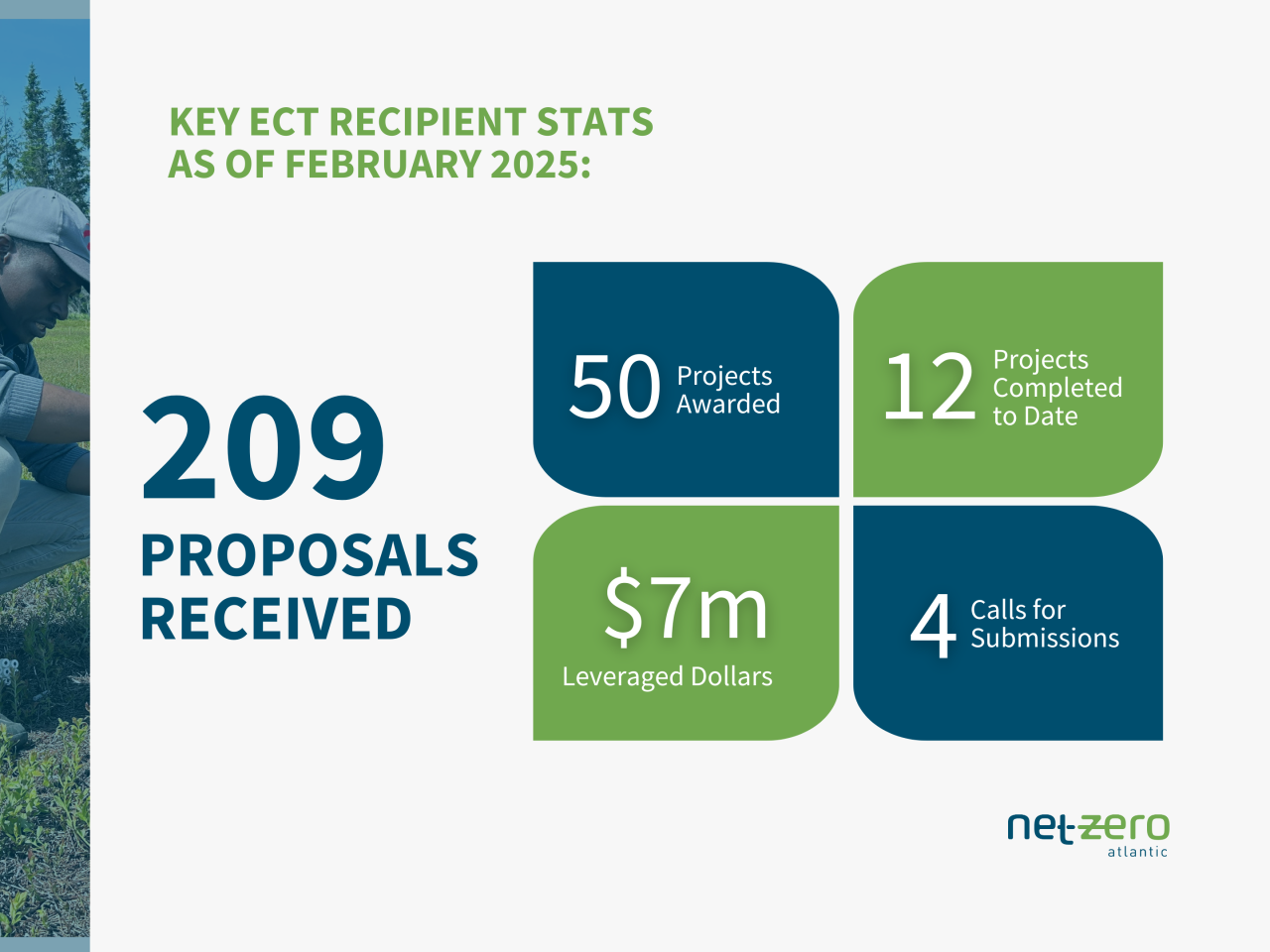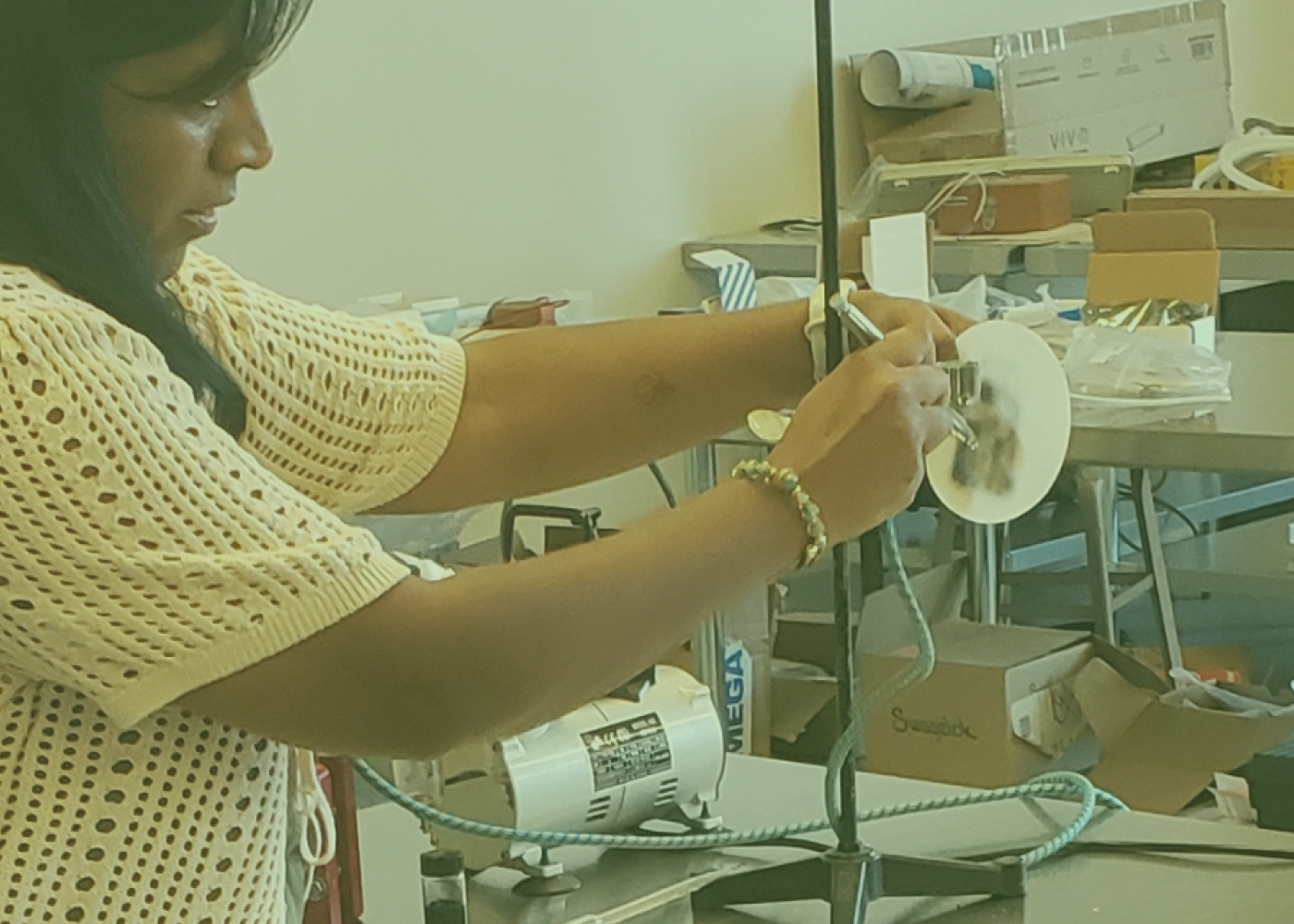From the Laboratory to the Market
Many of the solutions needed to achieve net-zero emissions goals in Atlantic Canada must be invented, proven, and scaled up to commercial availability. Net Zero Emerging Concepts and Technologies (ECT) Research Program is helping to accelerate the process.
The Net Zero Emerging Concepts and Technologies Research Program, or ECT Research Program, is:
- a three-year grant program
- for early-stage research and development projects
- that will support local solutions and help the province adopt new technologies and approaches
- to reduce the province's GHGs emissions post 2030
- and generate economic benefits for the province.
This program seeks to identify gaps in carbon-reduction pathways for hard-to-abate emissions and to support province-based solutions to meet these targets by securing investments and issuing open calls for R&D in two areas:
- fostering conceptual, early-stage genesis of novel technologies.
- evaluating the suitability of technologies emerging in other jurisdictions.
The primary objective of the ECT Research Program is to encourage and fund the research and innovation in Atlantic Canada and in both private and academic sectors to identify and develop groups of promising, emerging clean technologies, approaches and practices that warrant continued funding from government’s technology incubation ecosystem.
The following are the program's strategic objectives:
- Identify knowledge gaps to eliminate or offset the hard to abate GHG emissions (post 2030);
- Advance promising technologies and approaches that can address the gaps to net zero;
- Encourage collaborative research among Atlantic Canadian universities and community colleges, Indigenous-led institutions, the private sector and others;
- Generate intellectual property that has the potential to address global demands for low-carbon solutions; and,
- Foster thematic research networks that attract foreign investment.

A wealth of ideas and a R&D funding program ready to support them
Our stats report that Atlantic Canada is on the way to bringing critical emerging technologies and concepts from the laboratory to the market.
Questions? Comments?
Please send any inquiries about the ECT Research Program to info@netzeroatlantic.ca.

